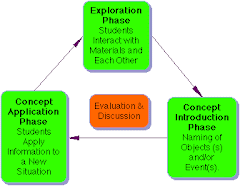Much of your teaching depends on cognitive abilities -- sharing information with your students and looking for signs that the information is understood. As a result, you should understand cognitive stages.
Child psychologist Jean Piaget described the mechanism by which the mind processes new information. He said that a person understands whatever information fits into his established view of the world. When information does not fit, the person must reexamine and adjust his thinking to accommodate the new information. Piaget described four stages of cognitive development and relates them to a person's ability to understand and assimilate new information.
Sensorimotor: (birth to about age 2)
During this stage, the child learns about himself and his environment through motor and reflex actions. Thought derives from sensation and movement. The child learns that he is separate from his environment and that aspects of his environment -- his parents or favorite toy -- continue to exist even though they may be outside the reach of his senses. Teaching for a child in this stage should be geared to the sensorimotor system. You can modify behavior by using the senses: a frown, a stern or soothing voice -- all serve as appropriate techniques.
Preoperational: (begins about the time the child starts to talk to about age 7)
Applying his new knowledge of language, the child begins to use symbols to represent objects. Early in this stage he also personifies objects. He is now better able to think about things and events that aren't immediately present. Oriented to the present, the child has difficulty conceptualizing time. His thinking is influenced by fantasy -- the way he'd like things to be -- and he assumes that others see situations from his viewpoint. He takes in information and then changes it in his mind to fit his ideas. Teaching must take into account the child's vivid fantasies and undeveloped sense of time. Using neutral words, body outlines and equipment a child can touch gives him an active role in learning.
Concrete: (about first grade to early adolescence)
During this stage, accommodation increases. The child develops an ability to think abstractly and to make rational judgements about concrete or observable phenomena, which in the past he needed to manipulate physically to understand. In teaching this child, giving him the opportunity to ask questions and to explain things back to you allows him to mentally manipulate information.
Formal Operations: (adolescence)
This stage brings cognition to its final form. This person no longer requires concrete objects to make rational judgements. At his point, he is capable of hypothetical and deductive reasoning. Teaching for the adolescent may be wideranging because he'll be able to consider many possibilities from several perspectives.
from Patient Teaching, Loose Leaf Library Springhouse Corporation (1990)
Monday, November 26, 2007
Subscribe to:
Post Comments (Atom)


No comments:
Post a Comment